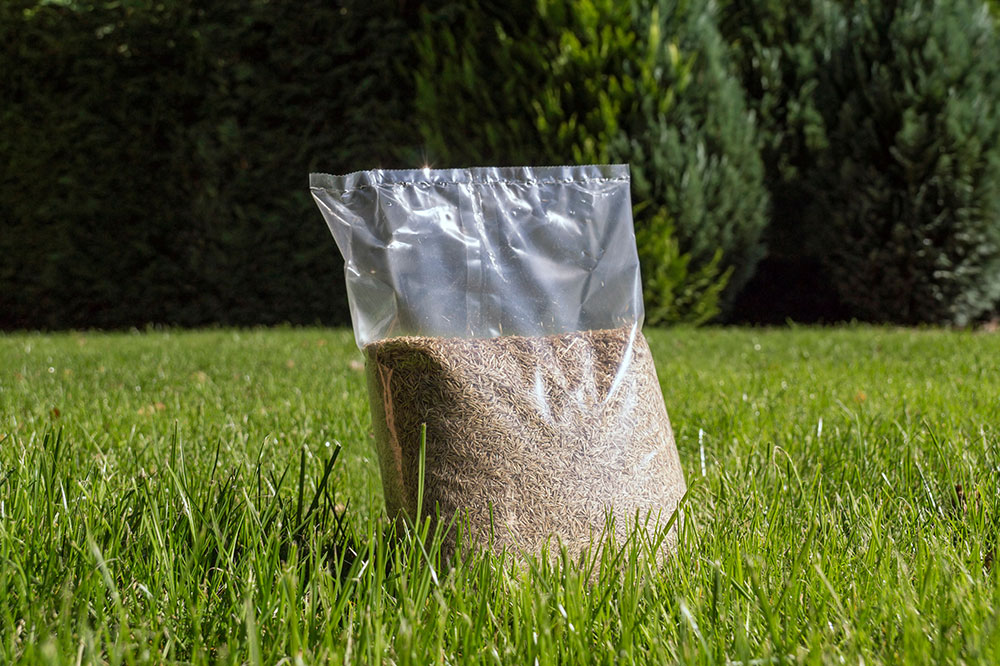11 Grass Seed Varieties for a Healthy and Green Lawn
Widely regarded as the world’s most important crop, grass performs various functions, ranging from water absorption to air purification. Moreover, it serves as an integral part of the food chain, as several herbivores animals, including elephants, cows, deer, and horses, depend on grass for nourishment. Today, with increasing cattle-grazing requirements, fast-growing grass varieties are cultivated in several parts of the world. Keep reading to learn more about some popular fast-growing grass-seed varieties.

Perennial ryegrass
This cool-seasoned, short-lived grass variety is widely cultivated in pastures for animal grazing. It is also beneficial for preventing soil erosion and is grown in areas characterized by moderate summers and cool winters. Perennial ryegrass seeds have excellent germination rates and may be sowed alone or blended with other fast-growing grass varieties.
Annual ryegrass
Annual ryegrass requires good moisture conditions and is commonly used as produce for livestock. This grass variety requires considerable care and attention during germination and cultivation. It is also sensitive to certain pasture herbicides, which can cause the grass to turn yellow and lead to stunted growth. Annual ryegrass is typically grown during the winter to spring period or late autumn. Mature annual ryegrass plants grow up to 900 mm in height. Annual ryegrass seeds are essential components of grass-seed mixes intended to prevent soil erosion.
Kentucky bluegrass
This vibrant grass variety yields rich produce with adequate care and attention. However, it requires high maintenance and cool weather conditions; it also requires sufficient sunlight and cannot survive in areas abundant with shade. Kentucky bluegrass seeds should be sown in areas with compacted soil and cool climes.
Bentgrass
Bentgrass is another cool-season grass variety entailing shallow roots and vibrant green leaves. Like Kentucky bluegrass, bentgrass requires high maintenance, including hygiene activities like irrigation, mowing, and dethatching. Moreover, there are various types of bentgrass, which typically require about two weeks to germinate. Bentgrass is preferred for cultivation in golf and tennis courts.
Bermuda grass
This grass variety is highly resilient to heat and drought and is commonly cultivated for this reason. The grass grows best in areas with mild winters and relatively high temperatures, preferably over 75 degrees Fahrenheit. It cannot tolerate lower temperatures and, therefore, cannot be grown in colder regions. Bermuda grass seeds should ideally be planted during the latter part of the spring when there is no frost and the daily average temperatures rise to 80 degrees Fahrenheit.
Zoysia grass
Zoysia grass is conducive to tropical climates and has considerable cold tolerance. The plant typically begins growing during late spring, when the weather conditions are pleasantly warm and flourishes during summer. It is commonly grown in golf and tennis courts and is light to medium green during the peak growing season. Zoysia grass seeds are tinier than most other grass seed varieties and should ideally be planted when summer is approaching.
Centipede grass
This grass variety requires low maintenance and is highly resistant to damp weather conditions. Although it is generally sensitive to cold weather, it is resistant to winter conditions in areas characterized by mild climates. Centipede grass has shallow roots, requiring additional care and attention during low rainfall periods; however, the plant’s health is seamlessly restored with a change in weather.
Buffalo grass
Buffalo grass lends itself to warm weather conditions and retains its lush green hue even during heights of summer. Moreover, it requires low maintenance and need not be watered often. Native to the Great Plains, the plant is considered difficult to cultivate. However, more recent cultivators of the plant have uncovered gardening strategies to increase the ease of cultivating this grass variety. The grass may be grown from seed or sod, with seeded buffalo grass lawns entailing both male and female plant varieties.
Carex
This visually appealing grass type is considered a great alternative to the traditional grass varieties used in lawns. Carex does not require high maintenance and can either be mowed high twice or thrice every season or left unmowed for a natural look. Carex seeds can be pressed into firm seed beds and watered regularly for rich and consistent growth.
Tall fescue
Tall fescues are low-maintenance grass varieties with an aesthetic light-green hue and coarse texture. Tall fescue seeds should be sown in well-drained soil varieties; however, they do not do well when grown with finer turfgrasses like Kentucky bluegrass.
Turf-type tall fescue
This type of turf grass requires lower maintenance than other turf grass varieties and can help with water conservation for lawn irrigation. Tall fescue is resistant to heat and drought and can give rise to deep roots. It may be seeded alone or as a part of seed mixes.
While planting grass seeds, the best bet is to consider the type of grass to be grown based on one’s requirements and the area’s weather conditions. One can purchase bulk grass seeds from nearby stores and create a mix using seeds of grass varieties that can be planted in the same region.